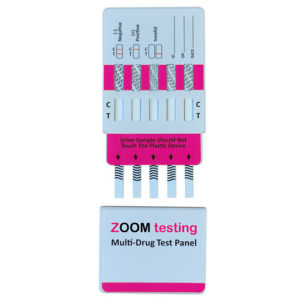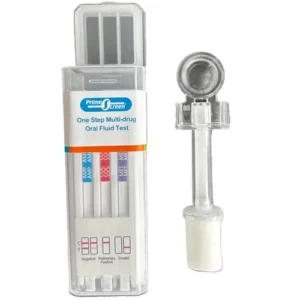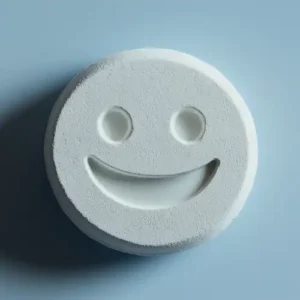Amphetamines are a class of central nervous system stimulants that include drugs like amphetamine, dextroamphetamine, and methamphetamine. While these substances can be prescribed for legitimate medical purposes such as treating attention-deficit/hyperactivity disorder (ADHD) and narcolepsy, they also have a high potential for abuse. Whether you’re taking amphetamines as prescribed or are concerned about drug testing, it’s important to understand how long these substances can remain detectable in your system.
What Are Amphetamines?
Amphetamines work by activating nerve cells in the brain and spinal cord, leading to increased mental focus, alertness, and concentration. Unlike cocaine, which has similar effects but wears off quickly, amphetamines can affect the body for several hours after intake. It’s worth noting that mixing amphetamines with alcohol or other drugs can intensify their effects and potentially lead to dangerous consequences.
Street names for Amphetamines include speed, sulph and whizz. It is one of the most commonly used drugs in the UK.
Detection Times for Amphetamines
The length of time amphetamines stay in your system can vary depending on several factors. However, here are some general guidelines for detection times in different types of drug tests:
- Blood: Up to 46 hours
- Urine: Up to 2-3 days
- Saliva: 24 to 48 hours
- Hair: Up to 90 days
It’s important to note that these are average timeframes and can differ from person to person. For regular users, amphetamines may be detectable for longer periods, potentially up to a week in urine tests.
Factors Affecting Detection Time
Several factors can influence how long amphetamines remain in your system:
- Age: Younger individuals typically have faster metabolisms and better organ function, which can lead to quicker elimination of the drug.
- Body composition: A person’s height, weight, and body fat percentage can affect how quickly amphetamines are processed and eliminated.
- Genetics: Genetic factors can influence metabolism rates and how the body processes drugs.
- Kidney and liver function: These organs play a crucial role in eliminating toxins from the body. Any impairment can slow down the process.
- Metabolism: A higher metabolism generally leads to faster processing and excretion of drugs.
- Frequency and amount of use: Regular, heavy use of amphetamines can lead to longer detection times compared to occasional or one-time use.
- pH of urine: The acidity or alkalinity of urine can affect how quickly amphetamines are eliminated from the body.
Types of Drug Tests
Different types of tests can detect amphetamine use. All have pros and cons that you will want to consider.
Urine Tests
The most common way to detect use of amphetamines is through urine tests. They can generally identify the substance anywhere from one to three days after consumption takes place up to two, possibly even four, days for heavy users.
At Zoom Testing we can supply a single drug test kit for amphetamines. More often than not though, you will want to use a multi drug test such as our 7 panel drug test for street drugs or our 10 panel workplace drug test kit. The latter test is our preferred UK drug testing solution when it comes to urine tests for speed and we recommend it to many companies looking to implement drug testing at work.
Blood Tests
Blood tests can detect amphetamines for up to 46 hours after use. They’re less common than urine tests but can be useful in determining whether someone is currently under the influence of amphetamines. Blood tests can also distinguish between prescribed use and abuse based on the concentration of the drug in the blood.
Hair Tests
Hair tests have the longest detection window, potentially identifying amphetamine use for up to 90 days after ingestion. While they’re highly reliable for detecting prior use, they’re not effective for identifying recent or occasional drug use. It’s worth noting that hair tests may be influenced by hair colour, with darker hair potentially retaining more of the drug.
Saliva Tests
Saliva tests can detect amphetamines from 24 to 48 hours after intake. They’re non-invasive and can detect same-day use in some cases. However, the presence of blood in the oral fluid sample may require additional testing for accuracy.
Effects of Amphetamines on the Body
Amphetamines can have significant effects on both the brain and body. Some of these effects include:
- Hyperactivity
- High blood pressure
- Dilated pupils
- Increased body temperature
- Aggressiveness
- Increased heart rate
- Severe agitation
In cases of chronic abuse, amphetamines can lead to more serious health issues such as stroke, heart disease, convulsions, and advanced tooth decay.
Withdrawal from Amphetamines
If you’re considering stopping amphetamine use, it’s crucial to consult with a healthcare professional. Abruptly discontinuing these drugs can lead to withdrawal symptoms, which may include:
- Depression or low mood
- Lack of energy
- Fatigue
- Excessive sleepiness
- Lethargy
Medical supervision during the withdrawal process can help manage these symptoms and ensure a safer, more comfortable experience. In some cases, antidepressant medications may be prescribed to help manage withdrawal symptoms.
Seeking Help
If you or someone you know is struggling with amphetamine abuse, it’s important to seek professional help. Treatment options may include:
- Detoxification programmes: These can help manage withdrawal symptoms under medical supervision.
- Inpatient rehabilitation: This involves staying at a treatment facility for a period of time to focus on recovery.
- Outpatient treatment: This allows individuals to receive treatment while continuing with their daily lives.
- Counselling and therapy: These can help address the underlying causes of drug use and develop coping strategies.
- Support groups: Joining a support group can provide encouragement and understanding from others who have had similar experiences.
Remember, recovery is possible with the right support and treatment. If you’re concerned about your amphetamine use or that of a loved one, don’t hesitate to reach out to a healthcare provider or addiction specialist for guidance.
In conclusion, while amphetamines can be beneficial when used as prescribed, it’s crucial to be aware of their potential for abuse and the length of time they can remain detectable in your system. If you’re using amphetamines, whether prescribed or not, always do so under the guidance of a healthcare professional and be mindful of the potential risks and consequences.
Photo: “Sorted for Speed & Whizz” by Zoom Testing
This post first appeared in 2018. It was last updated in August 2024.
Zoom Testing is a leading UK drug testing company and a supplier of Drug Test Kits.







